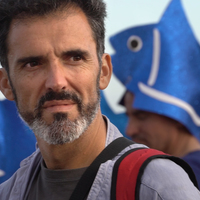
David Florido del Corral
David Florido del Corral is Associate Professor at the Department of Social Anthropology at the University of Seville since 2003. He won the First National Prize for Completion of Studies in Social Anthropology (1996), receiving a scholarship for the Training of Teaching and Research Programm (1997-2001) by the Junta de Andalucía (Regional Government), used for the completion of the doctoral thesis (2002): "Estado, Asociacionismo y Poder Local en la Conformación de la Política Pesquera" (State, Associationism and Local Power in the Shaping of Fishing Policy), with which he obtained the Extraordinary Doctorate Award from the University of Seville.
In the fisheries field, he has participated in exchange programmes with foreign research centres (Roosenstiel Research Center of Atmospheric Sciencies, University of Miami, 2000); Universidad de Temuco (2009) and Universidad Los Lagos (2014), Universidad Austral (2019, 2023) (Chile), Universidad Presbiteriana MacKenzie (Sao Paulo, Brasil) (2019), Instituto do Mar (Cape Verde, 2022). Also, he participates in networks of European researchers (Indicco data base Project, 2002, Fish for Food, Interactive Governance, 2003-2005 or AKTEA, network for the study of women in the fishing sector, 2004-2005), or Cost Action (CA 15217) Ocean Governance for Sustainability. He has participated in the project Planning in A liquid world with tropical StakEs: solutions from an EU-Africa-Brazil perspective (PADDLE) (H2020-734271). In the framework of this project, he stayed from October to November 2022 at the IMaR (Mindelo, Sao Vicente, Cape Verde).
It has participated in different projects of the National R&D Plan in the fields of marine policy and maritime heritage. As IP he coordinated the R+D+i Research Project. Dynamization of the fishing enclaves of the Andalusian Port System (Economic Uses, Governance and Heritage) (2013-2015), and the Resarch Project Analysis of the governance systems for shellfishing and small-scale fishing in Spain. (2020), supported by WWF.
The research activity has been deployed in two major thematic areas, in order of importance: (i) Anthropology of Fishing and Maritime (public maritime-fishing Policies, Fisheries Governance –special attention devoted to SSF; and (ii) maritime-fishing Heritage. It is characterized by transdisciplinarity (participating in projects with marine biologists, economists, and sociologists...), and by collaborating with environmental organizations interested in intervention projects in fisheries, such as WWF or Soldecocos (Spain).
Since 2021, he is a coordinator of the Research Group for the Study of Socio-Cultural Identities in Andalusia (SEJ-149).
Address: Doña María de Padilla, s/n- Departamento de Antropología Social
In the fisheries field, he has participated in exchange programmes with foreign research centres (Roosenstiel Research Center of Atmospheric Sciencies, University of Miami, 2000); Universidad de Temuco (2009) and Universidad Los Lagos (2014), Universidad Austral (2019, 2023) (Chile), Universidad Presbiteriana MacKenzie (Sao Paulo, Brasil) (2019), Instituto do Mar (Cape Verde, 2022). Also, he participates in networks of European researchers (Indicco data base Project, 2002, Fish for Food, Interactive Governance, 2003-2005 or AKTEA, network for the study of women in the fishing sector, 2004-2005), or Cost Action (CA 15217) Ocean Governance for Sustainability. He has participated in the project Planning in A liquid world with tropical StakEs: solutions from an EU-Africa-Brazil perspective (PADDLE) (H2020-734271). In the framework of this project, he stayed from October to November 2022 at the IMaR (Mindelo, Sao Vicente, Cape Verde).
It has participated in different projects of the National R&D Plan in the fields of marine policy and maritime heritage. As IP he coordinated the R+D+i Research Project. Dynamization of the fishing enclaves of the Andalusian Port System (Economic Uses, Governance and Heritage) (2013-2015), and the Resarch Project Analysis of the governance systems for shellfishing and small-scale fishing in Spain. (2020), supported by WWF.
The research activity has been deployed in two major thematic areas, in order of importance: (i) Anthropology of Fishing and Maritime (public maritime-fishing Policies, Fisheries Governance –special attention devoted to SSF; and (ii) maritime-fishing Heritage. It is characterized by transdisciplinarity (participating in projects with marine biologists, economists, and sociologists...), and by collaborating with environmental organizations interested in intervention projects in fisheries, such as WWF or Soldecocos (Spain).
Since 2021, he is a coordinator of the Research Group for the Study of Socio-Cultural Identities in Andalusia (SEJ-149).
Address: Doña María de Padilla, s/n- Departamento de Antropología Social
less
Related Authors
Jessica Alfaro Alvarez
Universidad de Playa Ancha de Ciencias de la Educacion
Vladia Torres Herrera
Universidad de Los Lagos, Chile
Rodrigo Díaz Plá
Universidad Academia de Humanismo Cristiano
María Catalina Álvarez Burgos
UNiversidad Austral de Chile, Valdivia
María Graciela Alcalá Moya
Instituto Politécnico Nacional
Gustavo Moura
Universidade Federal do Pará
Hector Morales
UCLouvain (University of Louvain)
InterestsView All (27)


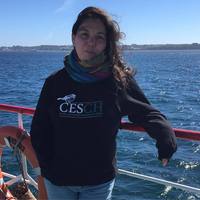
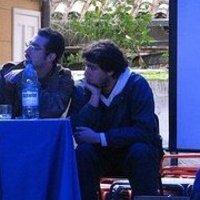

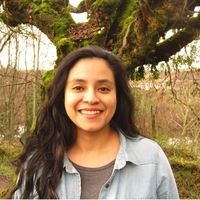

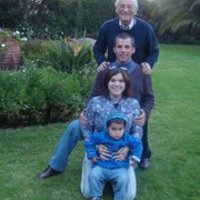
Uploads
Papers by David Florido del Corral
The results of the conservationist policy in two territories of southern Andalusia, Los Alcornocales Natural Park and Estrecho Natural Park are addressed. Natural parks were designed to harmonize conservationist objectives with local development, and have been defined as laboratories for social participation. Using group techniques (focus groups) and participatory techniques (workshops), we offer the diversity of social agencies involved in these areas, their discourses on participation in the management, their main claims regarding governance, their discourses on conservation and their future perspectives, as well as the trade-offs resulting from the institutionalization of both parks. We conclude that the natural park as a political instrument has not achieved its objective in either of the two territories, although we have identified a convergent interest among technicians and social agencies in implementing mechanisms to improve their governance.
The results of the conservationist policy in two territories of southern Andalusia, Los Alcornocales Natural Park and Estrecho Natural Park are addressed. Natural parks were designed to harmonize conservationist objectives with local development, and have been defined as laboratories for social participation. Using group techniques (focus groups) and participatory techniques (workshops), we offer the diversity of social agencies involved in these areas, their discourses on participation in the management, their main claims regarding governance, their discourses on conservation and their future perspectives, as well as the trade-offs resulting from the institutionalization of both parks. We conclude that the natural park as a political instrument has not achieved its objective in either of the two territories, although we have identified a convergent interest among technicians and social agencies in implementing mechanisms to improve their governance.
A partir de la ecología del atún, tal y como es reproducida y vivida desde la biología y desde el conocimiento experimental de los pescadores, pretendemos reconstruir los modos de hacer-saber, en sus dimensiones materiales y cognitivas, que constituyen este sistema humano-animal, entendido como un modo de inteligencia históricamente constituido de carácter colectivo y en el que participan humanos, distintos tipos de peces y mamíferos humanos, elementos abióticos y los ingenios técnicos humanos. Es decir, reconstruir la almadraba como un socio-ecosistema, que se ha transitado por distintas fases históricas y que podemos considerar como un factor de mediterraneidad.
La publicación responde a un proyecto financiado por la Dirección General de Bienes Culturales, de la Junta de Andalucía (Consejería de Cultura): “Las almadrabas suratlánticas andaluzas: valores etnológicos y posibilidades de patrimonialización”, en el marco de la Campaña de Actividades Etnográficas (2010).